FREEBIE: Plants for Bug Control Chart—get FREE access right now!
10 Helpful Plants for Bug Control in Your Kitchen Garden
Worried about insects ruining your kitchen garden crops? Learn which herbs and vegetables are plants for bug control and ward off those menacing bugs!
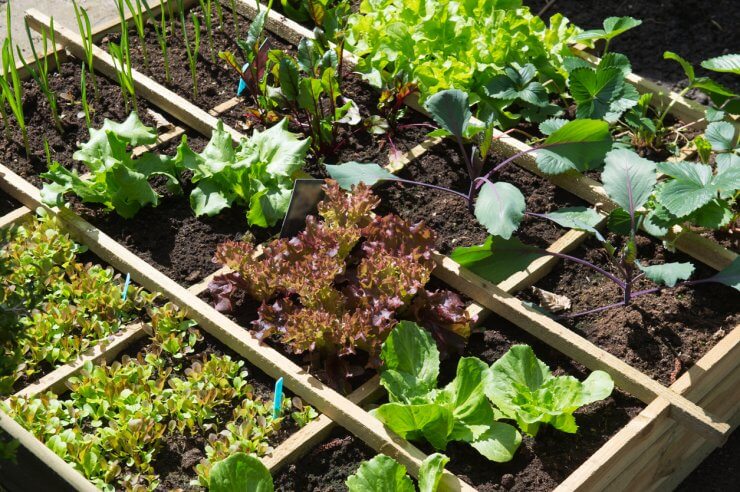
Dear Gardener,
The joy of growing a kitchen garden in your yard is imagining the delicious recipes and meals you’ll create using your home-grown herbs and vegetables. Do you know what gets in the way of that joy? Bugs. Gross, invasive, plant-eating, vegetable-killing bugs! I’m looking at you, Tomato Hornworm! I’ll never forget the first time I grew a large crop of tomatoes. I would pop outside to check on my kitchen garden and see that some of my tomatoes had been chewed, and others were missing leaves or stems were completely bare. The culprit that year was the Tomato Hornworm, and it caused me to lose nearly half of my tomatoes (and my mind!). Needless to say, I hadn’t considered using plants for bug control at that point.
I’ve learned over the years, that co-planting (or companion planting) is a great way for plants to help each other grow. It’s also a great way for some plants to protect others from bugs and other pests. Here are 10 helpful plants for bug control in your kitchen garden.
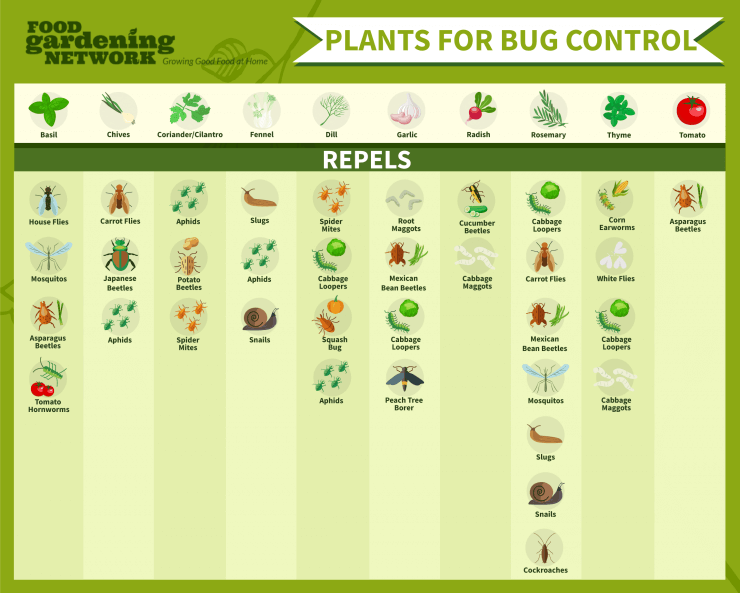
Click to download the graphic
Now let’s dig into all of these beneficial plants!
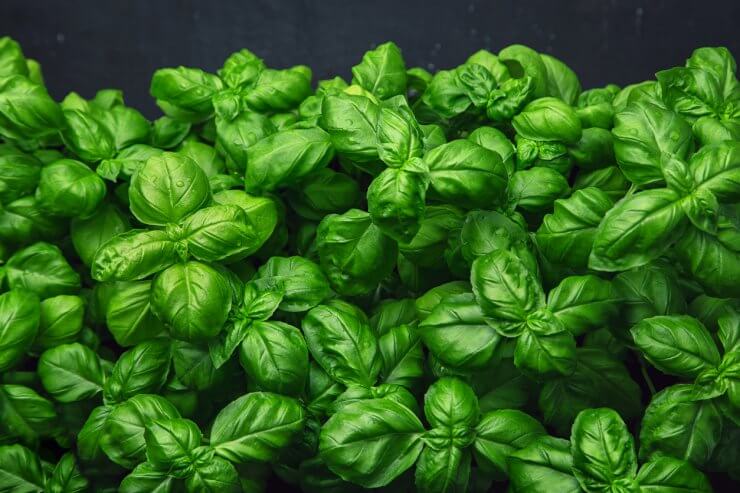
Basil
Basil is a great herb to plant near tomatoes, and really any other vegetable, because it repels house flies, mosquitos, asparagus beetle, and the tomato hornworm, just to name a few. You can even use basil to make your own insect repellent by steeping the leaves in boiling water and mixing with a bit of rubbing alcohol.

Chives
What if I told you that you could enjoy your bagel with cream cheese and chives and kick some beetle and aphid butt! Chives make it on the list of plants for bug control in your kitchen garden because they repel pesky bugs like carrot flies, Japanese beetles, and aphids.
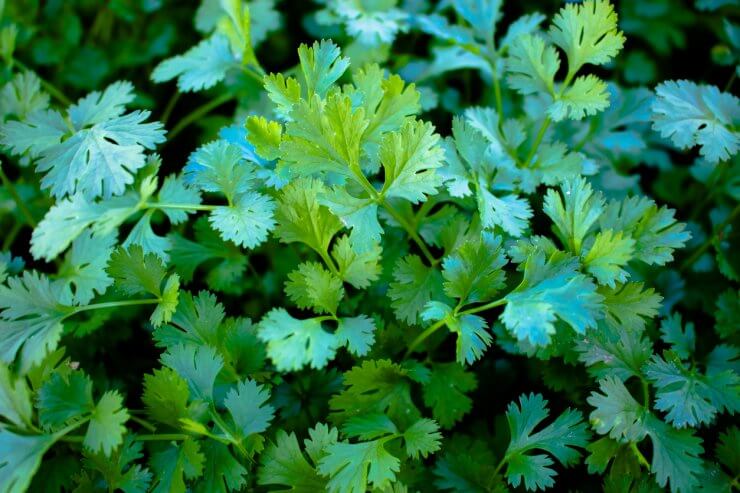
Coriander/Cilantro
You say Coriander, I say Cilantro! Either way, this plant (while sometimes polarizing in recipes) is an excellent plant for bug control. Aphids, Colorado potato beetle, and spider mites don’t stand a chance against this delicious (or soap-flavored, depending on your genes) herb.
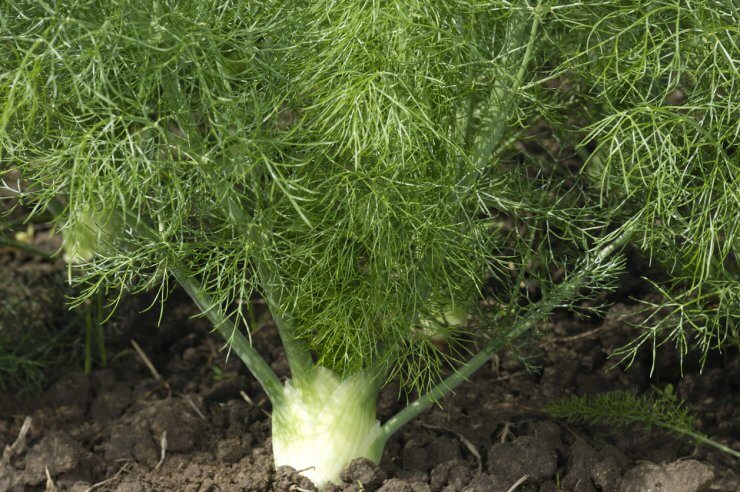
Fennel
I’ve said it once and I’ll say it again, fennel is underrated as heck! Whether eaten raw, used in a soup or roasted with cheese and breadcrumbs, this is an often-overlooked powerhouse vegetable. Planted in your kitchen garden, this licorice-scented plant becomes a deadly weapon against aphids, slugs, and snails.
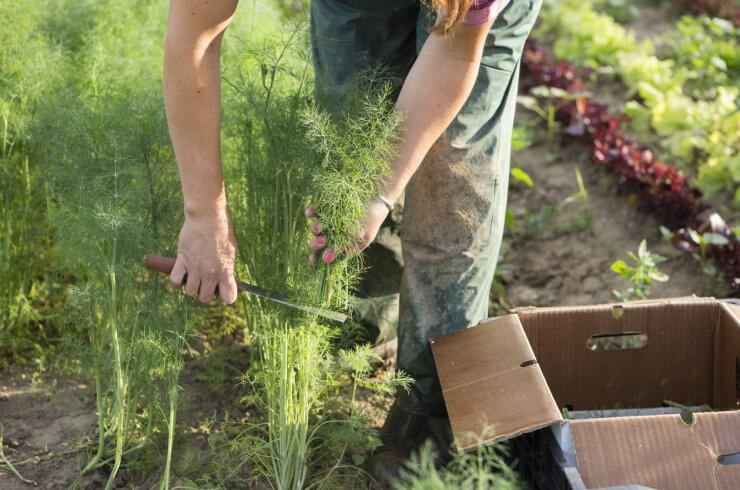
Dill
Dill is a generous herb, giving subtle flavor to everything from Grandma’s potato salad to yummy tzatziki, and don’t forget roasted potatoes. It’s a great garnish for soups and roasted vegetables, and of course, makes a great addition to pickle recipes. Planting dill in your kitchen garden will help keep aphids, squash bugs, spider mites, and cabbage loopers at bay.

Garlic
Question: How do you repel both vampires and root maggots? Answer: Plant some garlic! Garlic is one of the great plants for bug control in your kitchen garden. Garlic is a great companion plant to broccoli, cauliflower, and kale because it will help repel root maggots, cabbage loopers, Mexican bean beetles, and peach tree borers.

Radish
One of my favorite ways to enjoy radishes is to slice them thinly with my mandoline and add a little salt and olive oil. That’s it! I love the peppery flavor mixed with a satisfying crunch. Radishes make great kitchen garden plants since they keep cabbage maggots and cucumber beetles from invading your veggies.
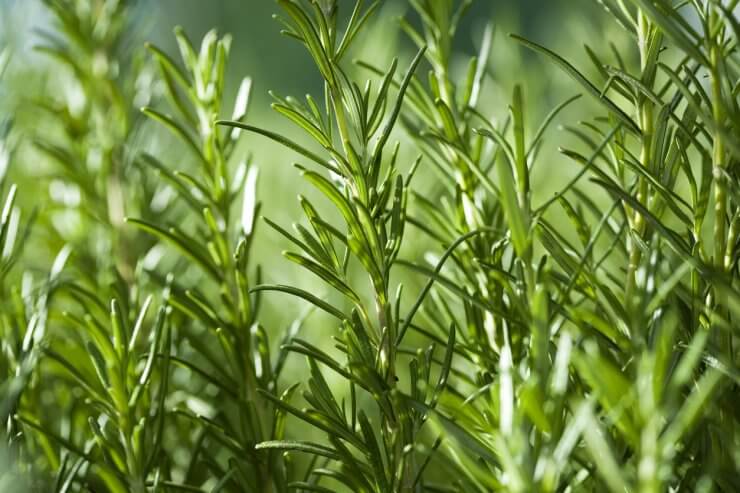
Rosemary
Rosemary has great bug repellent qualities and can be thrown into a campfire to provide some natural insect repellent while adding a lovely fragrance to the air. Used to flavor stews, chicken, and roasts, rosemary’s flavor profile is lemony pine and even a bit peppery. In your kitchen garden, rosemary is one of many powerhouse plants for bug control since it repels cabbage loopers, carrot flies, cockroaches, mosquitos, slugs, snails, and Mexican beetles.
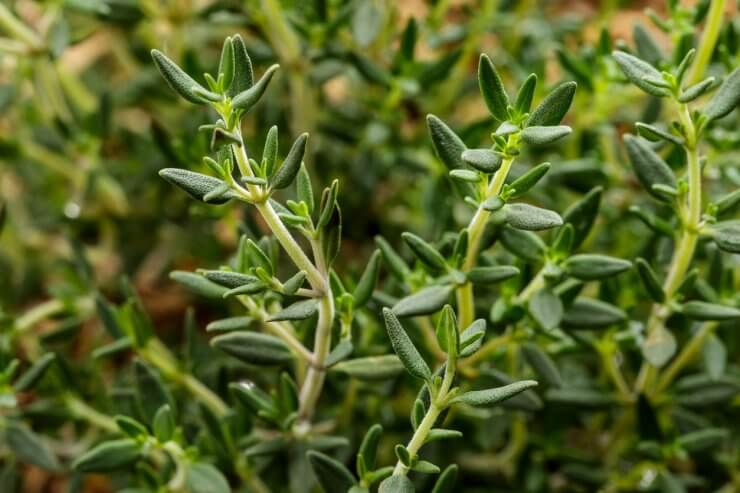
Thyme
Thyme is the quiet hero in the kitchen, with its subtle aroma and earthy flavor. It’s a great addition to Mediterranean-inspired recipes and can be added to oil and lemon juice to make a delicious marinade for chicken or pork. Planting thyme in your kitchen garden will help stave off cabbage loopers, cabbage maggots, corn earworms, whiteflies, and tomato hornworms.

Tomato
Who could forget the great tomato hornworm saga from several paragraphs ago? It’s true, tomatoes are prone to pesky bugs and critters. But they can also help any neighboring asparagus by repelling asparagus beetles. Companion planting for the win!
What herbs and vegetables do you plant in your kitchen garden for bug control? Let me know in the comments!

Amanda MacArthur,
Senior Editor & Producer
Food Gardening Network



This is great advise, THANK YOU !!!
I believe there is zero scientific evidence for the effectiveness of any of these plants as insect repellents.
There is scientific evidence to suggest that companion planting does work with certain plants. Plants with a specific companion plant did better than those planted with out a companion plant. If using companion plants helps reduce the amount of hazardous chemicals used in one’s garden all the better. The good thing is it doesn’t appear to hurt either plant when beneficial plants are grown together
WoW I am impressed. Keep up the information coming to us on this kind of plants. Add flower plants to your investigation.
Keep up the information coming to us on this kind of plants. Add flower plants to your investigation.